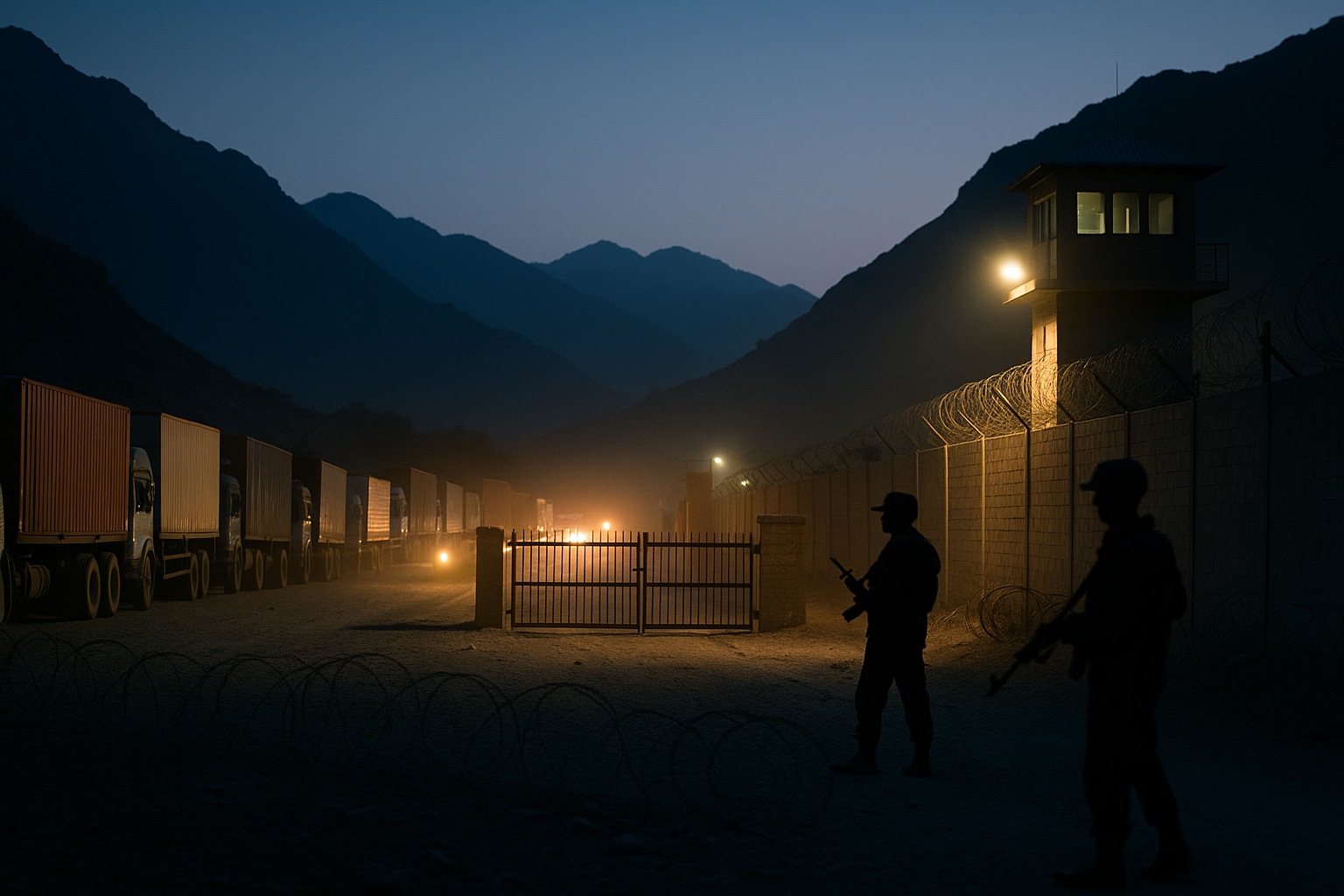Pakistan Says Afghanistan Peace Talks Failed as Ceasefire Frays
By Tredu.com • 10/29/2025
Tredu

Four days in Istanbul end without a deal
Pakistan said four days of peace talks with Afghanistan’s Taliban authorities in Istanbul ended without a workable solution, a setback that leaves a fragile ceasefire exposed to renewed violence. Information Minister Attaullah Tarar said Kabul’s team avoided core issues and deflected blame, adding that mediation by Turkey and Qatar did not bridge gaps over enforcement and cross-border militancy. The talks followed the deadliest clashes on the frontier since 2021, including airstrikes and exchanges that shut key crossings and left dozens dead.
Ceasefire holds on paper, pressure grows on the ground
Officials said a Doha-brokered ceasefire reached on October 19 remains technically in place, yet weekend firefights underscored its fragility. Pakistan reported soldiers killed in engagements with militants near the Afghan border, while accusing the Taliban of failing to curb Tehrik-e-Taliban Pakistan, the Pakistani Taliban known as TTP, which Islamabad says uses Afghan territory as a launch pad. Afghan interlocutors countered that Kabul does not control the TTP and urged de-escalation.
Rhetoric hardens after warnings of “open war”
The breakdown capped days of warnings from Pakistan’s defense minister that failure in Istanbul could tilt the situation toward “open war.” He argued that any truce needs a verifiable mechanism to halt cross-border fire and to restrain the TTP. The minister’s stark language framed the stakes of the Istanbul round and reflected political pressure at home after the worst violence in years along the 2,600 km frontier.
Core disputes: the TTP, verification, and safe corridors
Negotiators struggled on three linked points: action against the TTP, verification of ceasefire breaches, and safe corridors for trade and civilians. Pakistan sought explicit Taliban commitments to prevent TTP staging, plus a joint cell to log and investigate incidents. Afghan envoys resisted language they viewed as intrusive, according to regional reporting, and pressed for guarantees that Pakistani airstrikes and artillery would stop. The sides left Istanbul with no enforcement annexes or timelines.
Mediation track and what comes next
Turkey and Qatar hosted the sessions and encouraged a phased plan that would link border de-escalation to confidence measures for commerce. Without agreement, the mediators are expected to continue shuttle contacts, but analysts say momentum has faded. A near-term path would require quick steps that show restraint on both sides, such as reopening closed crossings and a joint hotline that records violations in real time.
Why the frontier is so combustible
The Durand Line cuts across communities and trade routes, and both governments accuse the other of sheltering armed groups. This month’s fighting halted cross-border trucking during peak harvest and strained local economies. Past pauses have collapsed when spoilers tested red lines, which is why negotiators placed heavy emphasis on verification and rapid response. Without those tools, ceasefires along this border tend to be temporary.
Risk of escalation, and the politics behind it
Security officials warn that tit-for-tat cycles can escalate quickly, especially if a mass-casualty event hits troops or civilians. Pakistan’s leadership faces pressure to prevent TTP attacks and to keep border towns secure. The Taliban seeks to avoid appearing to bend to foreign demands while dealing with internal factions and economic distress. Those political incentives make compromise difficult even when both sides profess a preference for calm.
Regional and market implications
A failure to stabilize the frontier risks new refugee flows, higher insurance costs for freight, and interruptions to overland trade between Central and South Asia. The Istanbul outcome may push traders to reroute cargo and hold inventory buffers, while insurers reassess premiums for crossings that saw recent firefights. If firing intensifies, consular warnings and aid convoys could be affected, adding humanitarian strain to a security problem.
Signals to watch in the coming days
Three markers will show whether the ceasefire survives. First, casualty and incident counts along known flashpoints. Second, any reopening of closed crossings on restricted schedules, which often signals back-channel progress. Third, public readouts from Ankara and Doha that set out a condensed timetable for technical talks on verification and TTP restraints. Absent movement on those fronts, the frontier will remain on a knife edge.
What could break the deadlock
A narrow package could still be assembled: a hotline staffed by both sides, joint patrols at select gates, a third-party observer for incident logging, and written, time-bound actions on specific TTP cells. Trade facilitation, such as green-lane permits for perishables, can create constituencies for calm. None of these steps resolves sovereignty disputes, but they can reduce miscalculation and create space for a broader accord.
How outside actors might influence outcomes
Regional partners with leverage on aid and recognition can press for restraint. Mediation capitals can offer technical support for border monitoring or convene donors to cushion short-term trade losses when gates close. Such steps are less visible than headline deals, yet they often decide whether ceasefires hold in practice. Public pressure from allies for proportional responses and credible verification would help stabilize the line in the near term.

How to Trade Like a Pro
Unlock the secrets of professional trading with our comprehensive guide. Discover proven strategies, risk management techniques, and market insights that will help you navigate the financial markets confidently and successfully.


